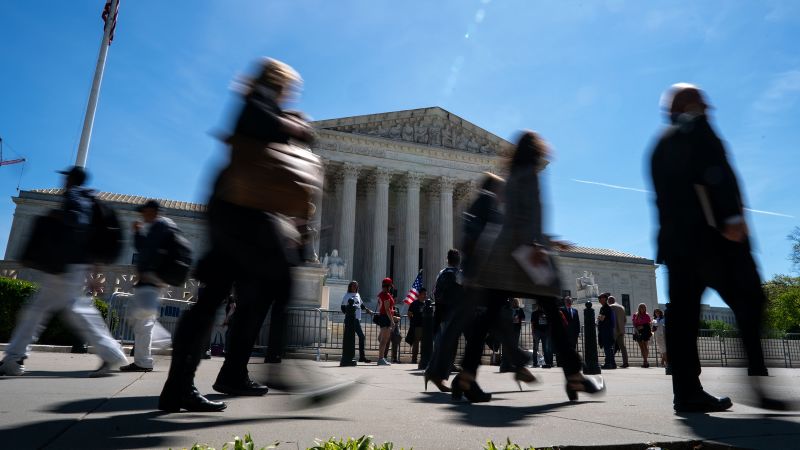The Supreme Court has agreed to consider whether the Biden administration exceeded its authority by implementing new regulations on “ghost guns,” mail-order kits that allow individuals to build untraceable firearms at home. These kits lack serial numbers, do not require background checks, and have no transfer records, making them appealing to those who may be prohibited from buying firearms legally. To address this issue, the Bureau of Alcohol, Tobacco, Firearms and Explosives approved a rule in 2022 requiring ghost gun manufacturers to include serial numbers on the kits and maintain records of purchasers. However, advocacy groups and five kit manufacturers challenged the regulation, arguing that it went beyond the scope of existing laws.
Despite the new regulations, the rule does not prohibit the sale or possession of ghost gun kits. Instead, it mandates compliance with federal laws governing the commercial sale of firearms. A US district court in Texas invalidated the rule, with the conservative 5th US Circuit Court of Appeals largely affirming that decision. The Supreme Court intervened in the case twice on its emergency docket, temporarily halting lower court decisions that prevented the regulation from taking effect. Last year, the Court sided with the Biden administration in an emergency request, permitting the regulations to remain in place while legal challenges proceeded.
Following the initial ruling, the district court blocked the regulations as applied to two specific manufacturers, prompting the Supreme Court to step in once more last fall to allow the regulations to continue. The Biden administration contends that there has been a significant increase in crimes involving ghost guns in recent years, with police tracing over 19,000 such firearms in 2021, up from around 1,600 in 2017. Both the administration and the kit manufacturers petitioned the Supreme Court to intervene in the case. The manufacturers argue that their products are designed for law-abiding citizens creating their own firearms and accuse the administration of attempting to shut down their businesses.
The issue at hand centers around the legality and regulation of ghost guns, which are becoming increasingly prevalent in criminal activity. Despite arguments from both sides, the Supreme Court must ultimately decide whether the Biden administration’s regulations overstep the boundaries set by existing federal laws regarding firearms. The outcome of this case will have significant implications for the future sale and possession of ghost gun kits, as well as the broader debate around gun control measures in the United States. Given the Supreme Court’s previous involvement in the case and the importance of the issues at stake, the decision will likely be closely watched by policymakers, advocates, and the general public.


